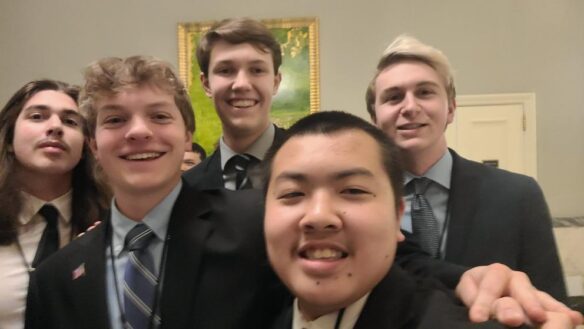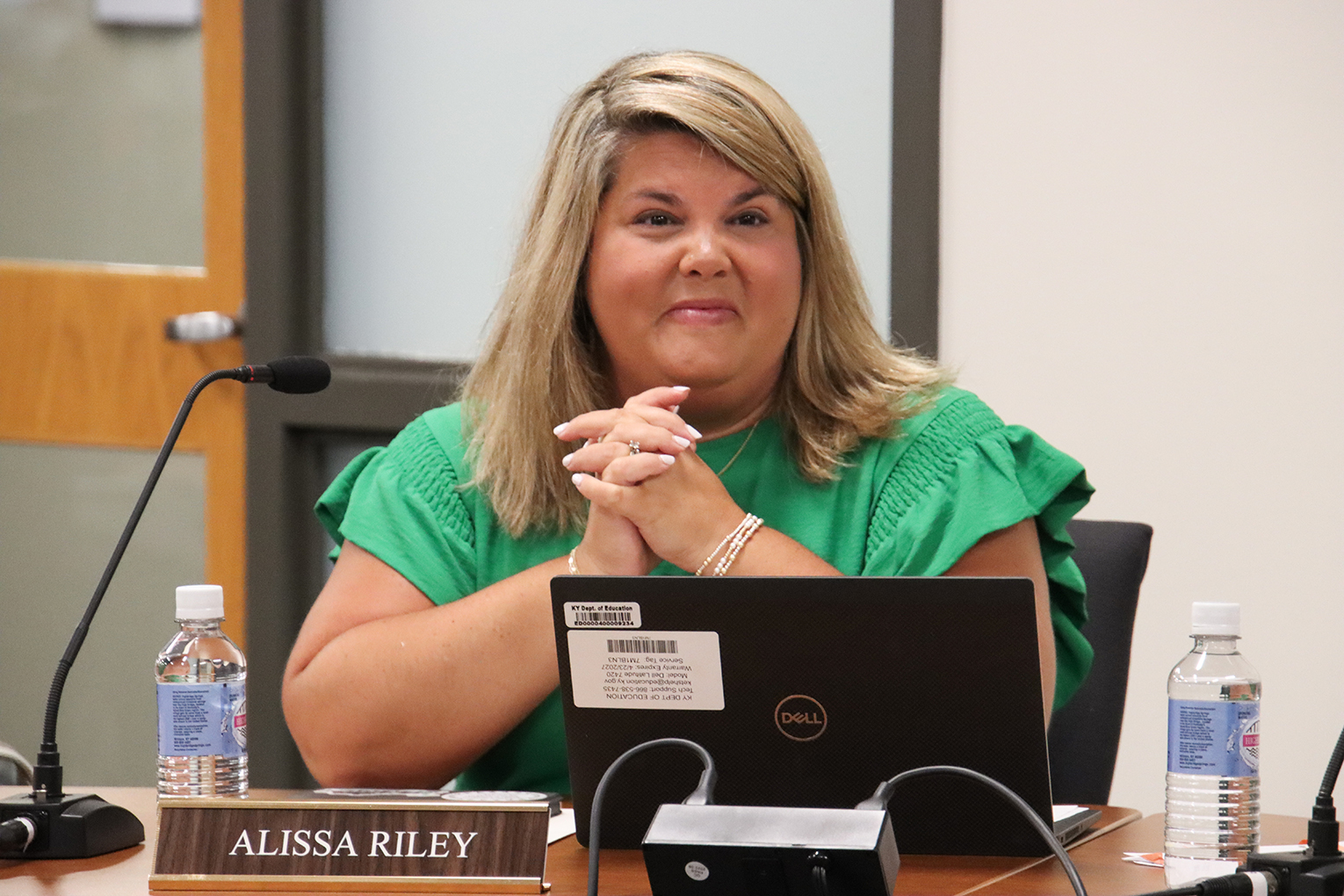
Heng Yang (middle) is one of two Kentucky students to represent the Commonwealth at the U.S. Senate Youth Program.
Photo submitted by Heng Yang.
“Welcome to the ballroom of the Mayflower Hotel in Washington D.C.! Would you like lemonade or iced tea?” Thus, I began my journey at the U.S. Senate Youth Program. The U.S. Senate Youth Program is meant to inspire the next generation of leaders through Washington Week, an intensive week of networking with the most talented kids nationwide, learning from the most accomplished public servants, marveling of our country’s history through the numerous monuments, and gaining advice from mentors provided by the Department of Defense.
The U.S. Senate Youth Program’s activities were the equivalent of a kid wandering into a candy shop. There were many landmarks to see, distinguished speakers to listen to and inspiring peers to bond with. Everything, everywhere, all at once could describe the programming. The sheer enthusiasm of the atmosphere was so thrilling. Whether it was the kindness of the military mentors, the willingness of fellow delegates or the hard work of the Hearst Foundation sponsoring and organizing the event, I had the most exhilarating week yet.
Before my week in Washington, I had an outsider’s perspective on how the government is run. I had a pessimistic view of politics as an endless series of deadlocks and polarization.
However, the common theme I learned from U.S. Senate Youth is compromise and cooperation. I learned from a visit to Mount Vernon how founding fathers like George Washington oversaw the writing of the Constitution based on compromises between 13 former colonies to replace the Articles of Confederation.
The need to be considerate of diverse stakeholders and teamwork are vital ingredients for a functional democratic system, the one the United States is founded upon. The freedom to express dissenting opinions has made us a global leader in government since 1776.
As I observed the Constitution and the Declaration of Independence at the National Archives, I admired how resilient the values instilled in these documents are in everyday life. My experience at the U.S. Institute of Peace reinforced that Democracy is a delicate system that requires “a perfect union” from every individual that can easily collapse with a bad actor. Through peaceful and logical conversations, stakeholders can have a medium of expression without resorting to violence.
But the experience went beyond the Greco-Roman architecture, elaborate murals and excellent speakers. The military mentors of the program and my fellow delegates taught me many lessons. Two military mentors inspired me the most: Lieutenant James Edgars of the U.S. Coast Guard and Lieutenant Ryan Boileau of the U.S. Army. Lieutenant Edgars headed my mentor group. Every morning, he read a quote from George Washington. I loved listening to his stories about his time in the U.S. Coast Guard, his education company ventures and his teaching at a boarding school in Europe. Lieutenant Edgars is a great, well-mannered person who listened to my insecurities and provided me with advice. I could not ask for a better friend and role model.
Lieutenant Boileau’s compassionate leadership on my bus as we toured D.C. was also admirable. He cheered us up when we missed out on the opportunity to meet President Biden when we were at the White House, had a great sense of humor paired with a healthy dose of wisdom, and made sure everyone was provided with snacks and water. The sentence, “I am severely concerned with the hydration level of this bus” already fills me with a sense of nostalgia.
Because of this experience, I want to leave a message of hope. The future will be in good hands. Despite the constant news of the pandemic, the Russian invasion of Ukraine and climate change, there is so much to fight for in the world.
Robert H. Henry, former chief justice of the U.S. Court of Appeals for the 10th Circuit and a U.S. Senate Youth alumni for Oklahoma in 1971, spoke about how we live in the most peaceful era in history. The delegates of this program certainly reflect this hope. Whether through scientific research, activism or community service, this will be a solid cohort to look up to.
I am thankful to the Kentucky Department of Education for the opportunity to join this group, learn from the speakers’ accomplishments and provide my unique insights. The experiences will resonate with me when I head to Columbia University to major in chemical engineering and then to medical school, after which I eventually hope to become an oncologist.
The U.S. Senate Youth Program empowered me to be a voice for myself and others, to help unite our collective talents and labor to help solve the world’s most pressing challenges in the decades to come. While there is hope, we certainly have our work cut out for us.
Thank you for reading about my experience. Now dinner is served.
Heng Yang is a senior at Conner High School (Boone County). He serves as the student member of the Boone County School Board, co-president of GO Pantry Ambassadors Council and a Jack Kent Cooke College Scholar.



Leave A Comment